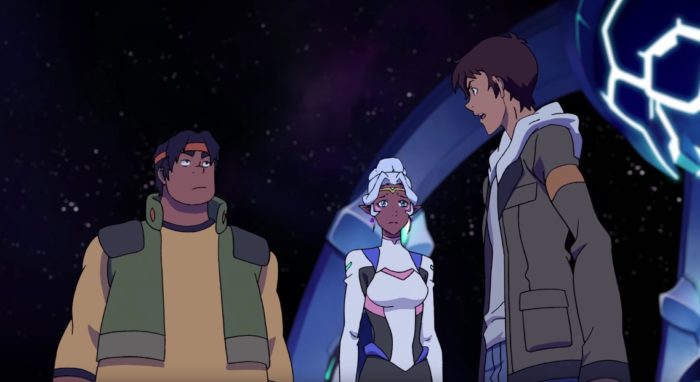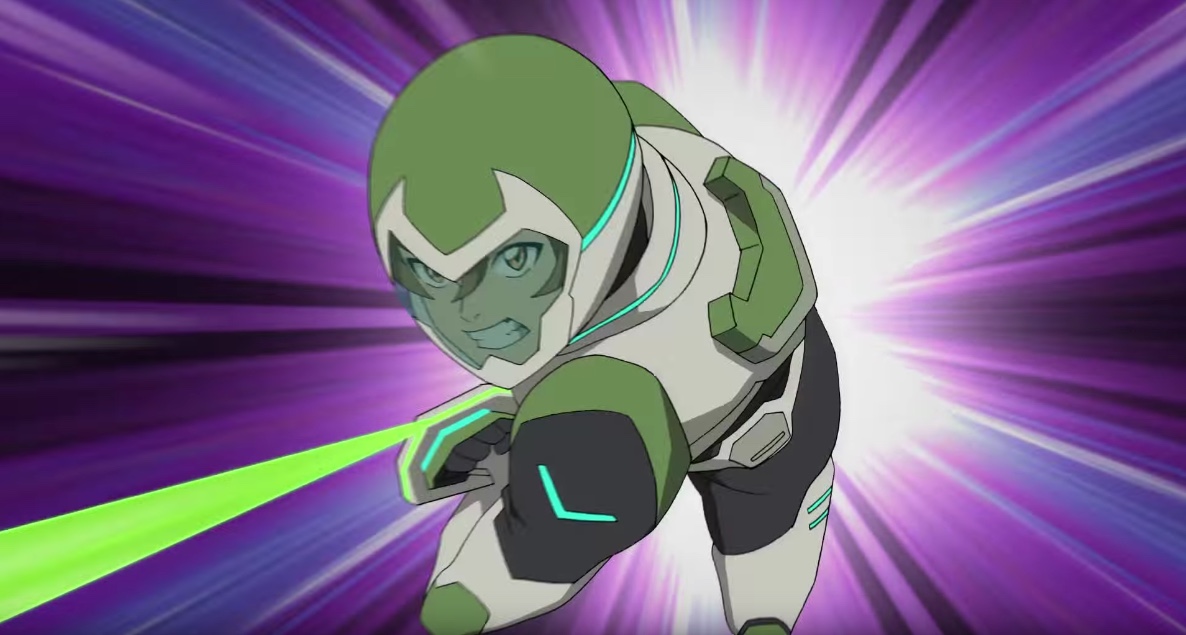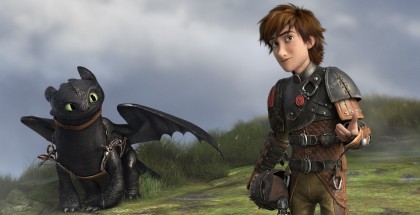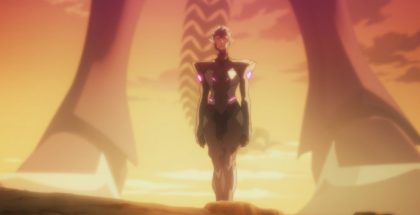Netflix UK TV review: Voltron Season 5
Review Overview
Fight scenes
8Plot development
9Voltron
6Ned Newberry | On 08, Apr 2018
Voltron: Legendary Defender’s fifth season features some of the best action thus far and by season’s end, the plot is far more developed than the previous season.
We pick things up with team Voltron on a mission that evokes the trench run from Star Wars. There’s a lot of great sci-fi homages this season with trials by combat, ancient star maps and some hijinks involving a reprogrammed droid.
Lance makes the transition away from complete goofball, although it would have been nice if there was a bit more work put in to developing his relationship with Allura. Keith is shown doing his usual space-ninja schtick with the Blade of Marmora, which follows on from last season, but there’s a shocking revelation in store for this maverick renegade. Pidge gets some much-needed closure with her dad and, as usual, Hunk is relegated to having no character development whatsoever. Shiro goes from fearless leader to brooding wild card, and he could definitely do with a trip to his neurologist. Allura takes centre stage, becoming the political focus of this season, pushing the agenda of peace with the Galra through Prince Lotor, which is an interesting dynamic considering what we know about Lotor’s heritage. Lotor, who we last saw offering the alliance with the Paladins, gets an excellent showing. He’s easily the most interesting part of Season 5; his role in the narrative as well as his lineage are well explored, and he’s the star of some of the most breathtaking fight scenes since Voltron first hit Netflix.
In fact, Lotor’s plan to achieve inter-galactic peace – providing the universe with a source of sustainable energy that doesn’t require blowing up a planet to acquire – feels oddly current. Lotor becomes a sort of Elon Musk figure, by way of Castlevania’s Alucard. It’s hard to say by the end of this season whether his intentions are still pure but he’s unlikely to be putting a perfectly good car in to space any time soon either.
The really disappointing thing about Voltron’s fifth season, as with last season, is that it’s over before it’s begun. Although this season feels like it coves a lot more ground this time around, and much of the action serves the overall narrative, rather than the other way round. This is to be expected from the same team that worked on The Last Airbender and it’s also no surprise that the choreography of the fight sequences is better than ever; a wonderfully kinetic duel that takes place in the second episode treads the line perfectly between duel of the fates and an anime death battle. It’s also wonderfully framed as one of three tiers of action, much like the final act of Return of the Jedi.
Of course, the writing and action scenes would count for nothing, were it not for the outstanding animation that doesn’t falter for a moment. The colour palette is still a gorgeous mix of sci-fi neon and vivid watercolour. This serves the world building of Voltron, which is another constant of this show that’s still on-point. This season shows off more of the history and wider context of this universe and hints at what’s to come for future seasons. The universe feels larger, it feels like there are more factions and more at stake than previously shown.
It is a little disappointing that there’s only one major Voltron battle in the whole season; while it’s a goodie, it would have been nice to see a bit more of the robot warrior. We’ve seen some truly excellent fights with the titular titan before, but it doesn’t feel like we’ve seen everything that Voltron can do yet. It’s also perpetually frustrating that whenever the paladins form Voltron, we’re forced to endure the same transformation sequence over and over again. It’s understandable that this is the hero moment that sign-posts the narrative for younger viewers and, while that might be the target audience for merchandising, Voltron has never felt like a show for kids. Rather, Voltron always feels like it’s aiming for a more young-adult audience, so it feels a little patronising to have this sequence breaking the flow of the narrative so often.
Season 5 provides plenty of character development, which is still supported by excellent performances. Each voice actor shows an impressive amount of emotional range in their performances. This really helps to make these characters feel like real people and, in a narrative where there are more than few complicated relationships, it’s vital that we’re made to care for those involved in order for the narrative to mean anything. That being said, Coran, played by the irreverent Rhys Darby, doesn’t get much of a look in, which is a shame – although it may be that Coran’s comic relief would start to wear off, if overused.
By the end of Season 5, the world of Voltron looks vastly different than when it started. It’s great that this season manages to blend the fantastic action and world-building from previous seasons. Some story developments suggest that Voltron is close to wrapping up but there are unanswered questions that demand another season. Regardless, Voltron’s fifth run manages to strike the balance of what an animated sci-fi action series from the Avatar guys should be. There’s an intriguing story on both a micro and macro scale, great action sequences and awesome production values. It’s a mark of a good web series that, once its finished, you go back and watch it again from the beginning. Voltron Season 5 will make you do exactly that.
Voltron: Legendary Defender Season 1 to 6 are now available on Netflix UK, as part of an £9.99 monthly subscription.





















